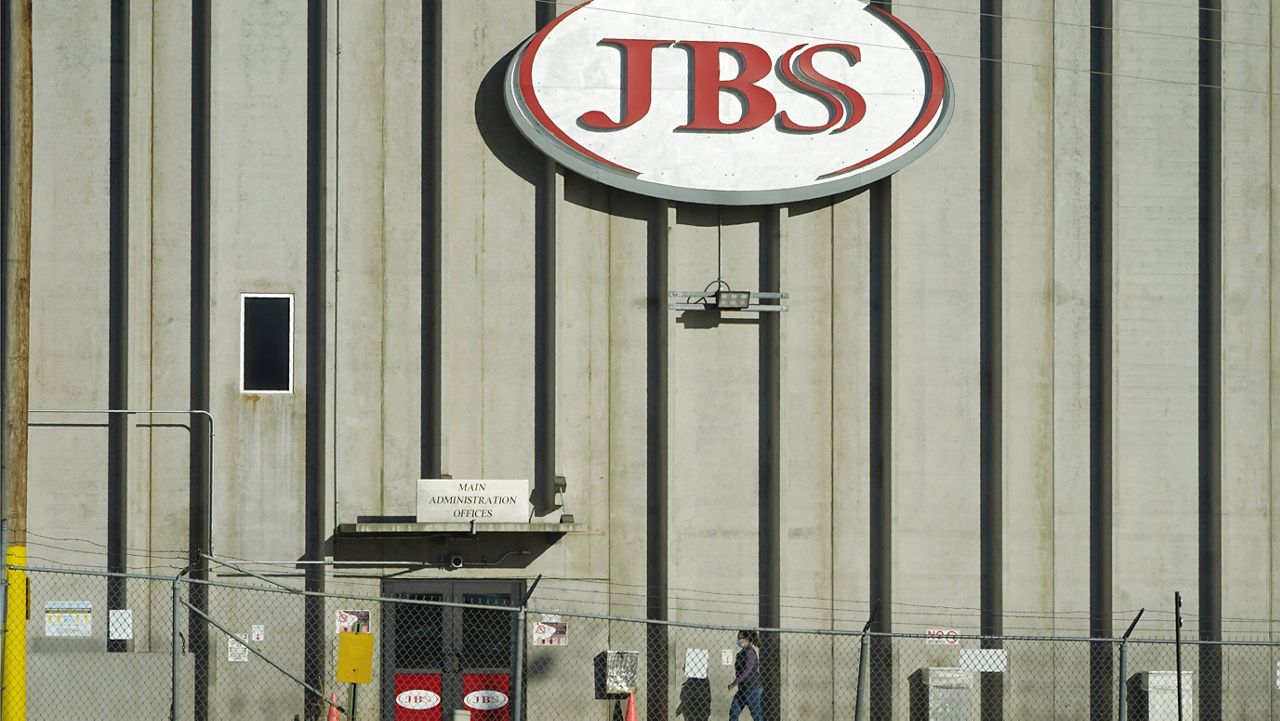A cyberattack on JBS USA, the world’s largest meat producer, has reportedly forced the shutdown of a number of plants, fueling fears that the supply of beef, pork and chicken could take a hit globally and send prices soaring.
What You Need To Know
- JBS USA, the world’s largest meat producer, announced Monday that “it was the target of an organized cybersecurity attack” over the weekend
- The White House told reporters Tuesday that the company notified the Biden administration Sunday that it was the victim of a ransomware attack
- The FBI is investigating the attack and officials are working to determine its impact on the nation’s meat supply, said White House Deputy Press Secretary Karine Jean-Pierre
- It is the second time in less than a month that U.S. consumers could be affected by a major ransomware attack after the Colonial Pipeline Co. was hit in May
JBS announced Monday that “it was the target of an organized cybersecurity attack” Sunday. The Brazilian company said the hack impacted some of its servers supporting IT systems in North America and Australia.
JBS said it immediately took all affected systems offline, notified authorities, and activated a team of IT professionals and third-party experts to resolve the situation. The company’s backup servers were not impacted, JBS said.
“The company is not aware of any evidence at this time that any customer, supplier or employee data has been compromised or misused as a result of the situation,” the company said in a statement. “Resolution of the incident will take time, which may delay certain transactions with customers and suppliers.”
JBS did not reveal the nature of the hack, but White House Deputy Press Secretary Karine Jean-Pierre told reporters Tuesday that the company notified the Biden administration Sunday of the ransomware attack and followed up Monday to say a criminal organization, likely tied to Russia, made the ransom demand.
“The White House is engaging directly with the Russian government on this matter and delivering the message that responsible states do not harbor ransomware criminals,” Jean-Pierre said.
The FBI is investigating the attack and officials are working to determine its impact on the nation’s meat supply, Jean-Pierre added.
It is the second time in less than a month that U.S. consumers could be affected by a major ransomware attack. On May 7, the Colonial Pipeline Co., which provides about 45% of the fuel to the East Coast, was the victim of an attack that shut down its Texas-to-New Jersey pipeline for six days, sending fuel prices higher and panic buyers draining gas stations.
Colonial CEO Joseph Blount acknowledged paying the cyber criminals $4.4 million, a practice the federal government generally advises against because it encourages future attacks. U.S. officials have blamed the hacking group DarkSide, which also has links to Russia, for that ransomware attack, in which hackers disable computer networks while demanding large payments.
Bloomberg reported Tuesday that JBS’s five largest beef plants in the U.S. have halted processing, wiping out nearly a fifth of America’s production. Those facilities are located in Utah, Texas, Wisconsin and Nebraska. Plants in Australia and Canada are also idle, according to Bloomberg.
JBS, which owns facilities in 20 countries, accounts for about a quarter of all beef production and a fifth of pork production in the U.S.
Pilgrim's Pride, a chicken supplier owned by JBS, also had to cancel shifts for at least two plants — one in South Carolina, the other in Wisconsin — due to IT issues, according to reports.




